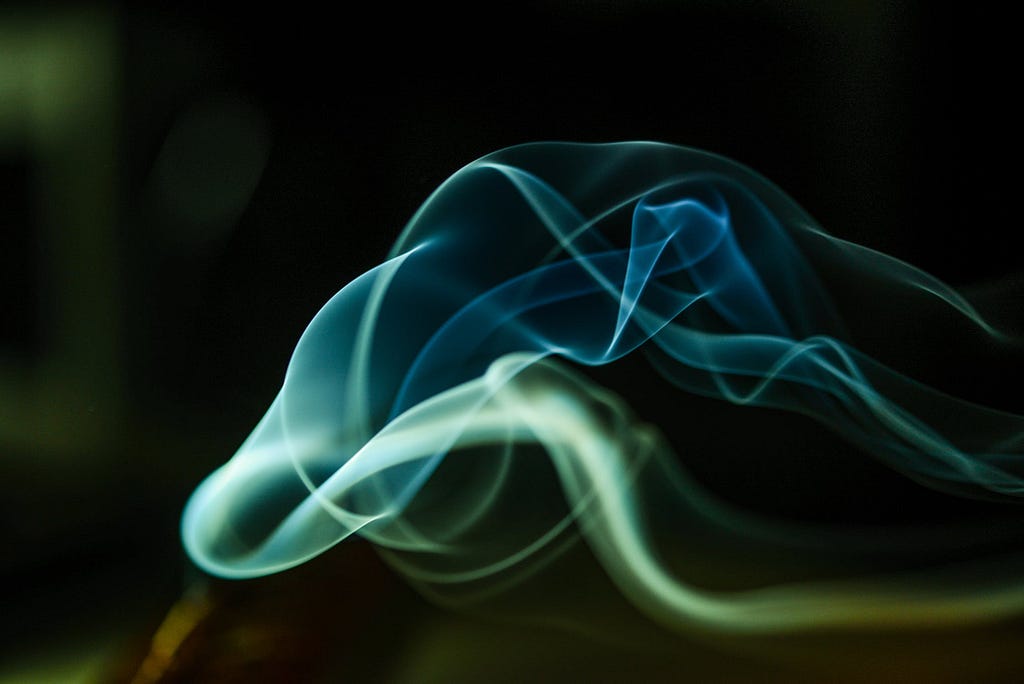
Hearing aids have always been a part of my life, but they haven’t always been a part of my poetry. For years, I never even encountered hearing aids in the poetry world. Somehow, I hadn’t questioned this lack of representation. It was only this past summer that I began to search for work by other hard-of-hearing writers. Only then did I finally write my first poems and stories featuring hearing aids.
A head start: a friend pointed me toward the poetry of Meg Day, another genderqueer, hard-of-hearing poet. Lyric lines like “even those of us who cradle / our mothers in the webs of our thumbs cannot help but point to our ears” pricked me and made me feel so seen. And although I do not know sign language, I audibly gasped when I saw how Day’s books had incorporated ASL diagrams. My conception of poetry — what could be said, how it could be said, who could “hear” it — expanded instantly.
More recently, I stumbled across Camisha Jones’ poetry. Jones’ dazzling send-up to Genesis, Ode to My Hearing Aids, had me rolling in fits of tears and laughter:
So God said
let there be volume control
let there be choice how loud life should be
and there came the power to fade
the voices, the annoyances, the noise
and that was mighty good for all the unnecessary drama
Then God said let there be surprise, startle even
at the bird’s chirp, the ice maker,
the cabinet slammed shut
let there be delight
at the first calls in months
to father & best friend
and these were such good reasons for choking back tears
that God saw
the dark & the light
dangling brilliantly from each ear
and God whispered amen
then smiled when it was heard.
Amen!
//
One of my favorite poetry readings I’ve attended was Tyehimba Jess’s Chicago tour stop for Olio. Like everyone else in the big crowd he drew, I was taken by his invigorating and relatable performance style. But even more, I was struck by the fact that it was also one of the most hearing accessible readings I’ve ever attended. On account of his intensely visual style (many of Olio’s virtuosic “syncopated sonnets” can be read multi-directionally: forwards, backwards, diagonally, etc), Jess used a projector to display his poems as he read. He even traced lines with his finger as he read, so the audience could follow along as he hopscotched between lines in his improvised renditions. All the while, he projected and enunciated clearly (and was amplified too). This was a rarity: a reading where I missed nary a word.
Accessibility is often a concern for me as I attend readings and performances. I depend on being able to read people’s lips as they speak. If the poet whispers or turns away from the microphone, or if someone in front of me blocks my view of the poet’s mouth, or if there is any interfering noise, then my effort to understand feels almost Herculean. In such circumstances, it’s all too easy for me to tune out and just pretend I’m following along even as I’m missing everything. It’s moments like this when I desperately wish there were a “captions” feature for everyday life.
Occasionally, events will feature an ASL interpreter, but that doesn’t help me, since I don’t know ASL. Whenever possible, I’ll bring physical copies of poets’ work with me so that I can follow along during the reading. It is an unfortunate reality of our ableist world that the onus of accessibility all too often falls on people with disabilities.
So when Jillian Weise’s poem Nondisabled Demands appeared in the Academy of American Poets’ popular Poem-a-Day earlier this month, it struck a chord:
It’s not fair. You owe it to the reader.
We’re trying to help. We have an uncle
with a disability and he always says
exactly what it is. Take it from him.
Take it from us. Take it from them.
You can’t expected people to read you
if you don’t come out and say it.
Everyone knows the default mode
of a poem is ten fingers, ten toes
with sight and hearing and balance.
When this is not true, it is incumbent
on you to come out and say it.
//
Come out and say it:
Reflecting on my own aesthetic, I eagerly embrace wordplay, especially homophonic sound play. I usually chalk this up to a queer worldview — how I believe words, like desiring bodies, long for the company of similar sounds; or how words, like self-fashioning bodies, can remake themselves over and over again alchemically. But more recently, I realized that my hearing loss informs my writing just as much. My constant state of uncertainty about the sounds around me invites me into the music of ambiguity as I am continually unscrambling and mishearing the language in circuit around me.
To give but one example: for years I misheard the lyrics of Rihanna’s We Found Love. I’m embarrassed when I realize the sheer number of dance parties where I sang along, “We found love in a whole new place.”
A queer poetics of mishearing: every line of conversation casts additional lines of horizon. Sonic alternatives, potentialities. When I am with people I love, I am able to embrace my awkward fumbles and misinterpretations as sources of comedy and even kinship. Like Derrida’s supplement, or like resonances in a harmonic series, these ambivalences can make my language more whole, find unexpected love in a whole new place.

The Poet Wears Hearing Aids was originally published in Anomaly on Medium, where people are continuing the conversation by highlighting and responding to this story.
